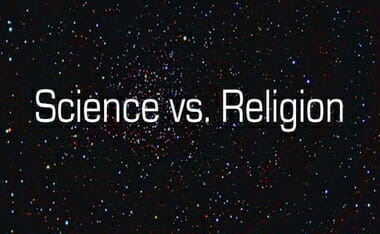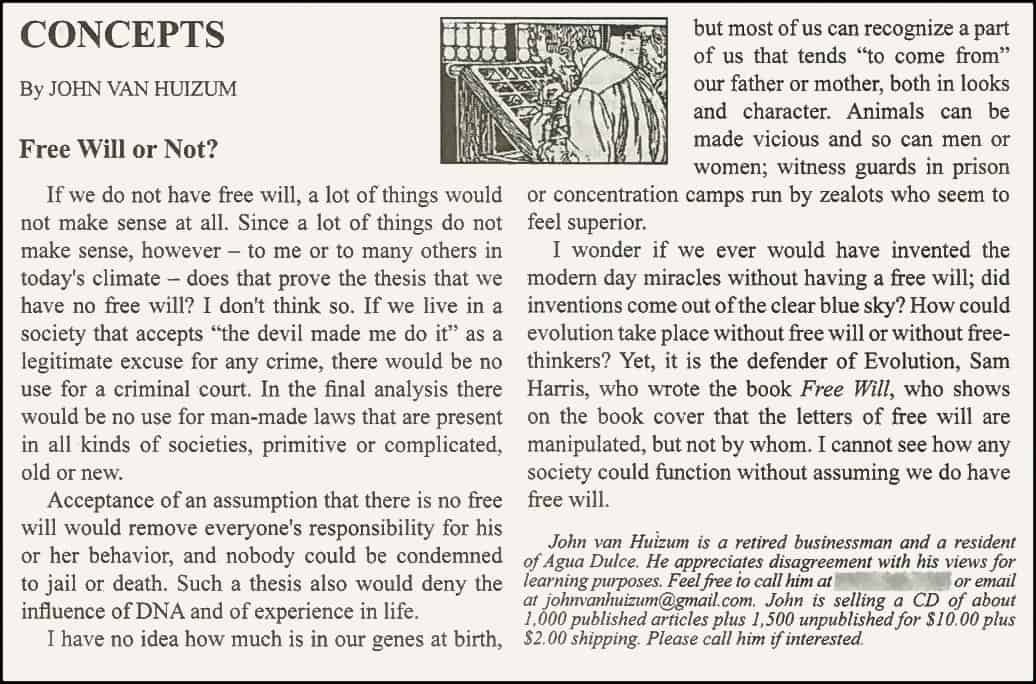Video description:
J. Warner Wallace describes the Transcendental Argument (TAG) and it being one of the many pieces in the quiver of our cumulative case. For more, see his posts on the matter:
See also Got Questions: What is the transcendental argument for the existence of God?
And CARM’s, The Transcendental Argument for the Existence of God
^ ^ ^ Updated file above ^ ^ ^
From a debate many years ago
Can I point something out to you that will take us momentarily from this conversation, but explain why you are assuming my worldview in this conversation? I hope you can pick up what I am about to lay down.
First though, I wish to point out that the Lord’s Resistance Army (a person with a “tag,” like truck drivers on CB radios) is acting in opposition to Jesus’ teachings (you cannot say their actions are morally wrong because you equate moral actions to either society or yourself. If 51% of the world body said such actions were moral, then magically the 49% who think otherwise would themselves become immoral for believing differently). But not in opposition to naturalism’s teachings and assumptions.
However, in making your distinction, and I quote you:
- Their belief in Christianity stands in stark contradiction to your own.
You are assuming the Law of Non-Contradiction and the Law of Excluded Middle in your above statement. This has consequences for you, even though you may not realize it.
In our unfolding conversation here, I am sure we can agree that you are using logic and reason in your argument, as I pointed out. You are expecting me to be able to delineate between false and correct arguments and come to a conclusion based on delineating between truth and untruth, false argument and true argument, by the Laws of Logic by using reason, correct? Otherwise you are a masochist, a person who argues for arguments sake.
So by engaging me in conversation you are asking me to give you some reasons or evidences by which you may observe and examine so that you might come to the conclusion as to the truthfulness of my claims or the falsity of my claims. But the moment that you ask me to give you some evidence that you might prove something…. you have assumed my worldview. You’ve done that because you are assuming that my mind is wired exactly like your mind is wired and are assuming that all men reason logically. But my worldview is the only worldview that gives an answer to why men reason logically.
So the question is this: are the laws of logic binding to us, all men. We all observe gravity, so we experience the Law of Gravity. We can never reach out and touch or experience the Law of gravity with our senses, we can only experience the effect of the Law. Likewise, Logic is not a physical function, yet we experience it. The laws of logic are non-tangible, they can’t be seen, they can’t be touched, yet they are binding on all men (you proved this point when you used logic by assuming the Law of non-Contradiction and the Law of Excluded Middle, and expected me to be bound by them as well as understand them). Can you touch, taste, or see the Law of Non-Contradiction? Where do these laws of logic/rationality come from?
Naturalism is a world view that requires all existing entities to be physical entities or reducible to entities in the physical world. Thus naturalism cannot account for rationality because it cannot give the right kind of causes (The Law of Causality, “cause and effect”) necessary for rational thought. In theism we are taught that these rational causes explain the reasons why one holds some beliefs. That bold part is very important. Let me explain.
To see the above point clearly, consider the following claims:
(1) All Ps are Qs.
(2) X is a P.
(3) X is a Q.
When one understands the claims in (1) and (2), then one understands that (3) must follow from the other premises. In order for one to grasp why (3) follows from (1) and (2), one needs more than natural, physical laws of cause-and-effect. To draw the right conclusion, one needs the ground and consequent (C. S. Lewis) type of reasoning. But it is precisely this kind of reasoning that seems unavailable to the naturalist worldview.
Rationality requires rational causes; this is a problem for naturalism. A naturalist could explain someone’s belief entirely in terms of behaviorist psychology (e.g., certain factors caused this person to hold this belief), for example, but it cannot analyze the rational causes that support someone’s belief. For someone to do that, they would need something beyond physical causes. In fact, naturalism describes all beliefs in terms of physical, natural causes, which in turn, has no room for mental causes. C.S. Lewis closes a chapter in his book Miracles with this conclusion:
Reason is given before Nature and on reason our concept of Nature depends. Our acts of inference are prior to our picture of Nature almost as the telephone is prior to the friend’s voice we hear by it. When we try to fit these acts into the picture of nature we fail. The item which we put into that picture and label “Reason” always turns out to be somehow different from the reason we ourselves are enjoying and exercising as we put it in. . . . . . But the imagined thinking which we put into the picture depends – because our whole idea of Nature depends – on thinking we are actually doing, not vice versa. This is the prime reality, on which the attribution of reality to anything else rests. If it won’t fit into Nature, we can’t help it. We will certainly not, on that account, give it up. If we do, we should be giving up Nature too.
Even though the above is somewhat long, trying to get such a hard subject across requires space. The below is not required reading and you may forego it, but it may explain what I couldn’t (for the other Christians here in this board watching this discussion, you may want to save this article and learn its premises, as they are powerful refutations of the naturalist point of view). I will post an example of this in action in a hypothetical found in a really intelligently argued article found at Leader U called, Methodological Naturalism?:
First, then, some examples that suggest that science is not religiously neutral.3 I begin with Herbert Simon’s article, “A Mechanism for Social Selection and Successful Altruism.”4 This article is concerned with the problem of altruism: Why, asks Simon, do people like Mother Teresa do the things that they do? Why do they devote their time and energy and indeed their entire lives to the welfare of other people? Of course it isn’t only the great saints of the world that display this impulse; most of us do so to one degree or another.
How, says Simon, can we account for this kind of behavior? The rational way to behave, he says, is to act or try to act in such a way as to increase one’s personal fitness; i.e., to act so as to increase the probability that one’s genes will be widely disseminated in the next and subsequent generation, thus doing well in the evolutionary derby.5 A paradigm of rational behavior, so conceived, was reported in the South Bend Tribune of December 21, l991 (dateline Alexandria (Va.)). “Cecil B. Jacobson, an infertility specialist, was accused of using his own sperm to impregnate his patients; he may have fathered as many as 75 children, a prosecutor said Friday.” Unlike Jacobson, however, such people as Mother Teresa and Thomas Aquinas cheerfully ignore the short- or long-term fate of their genes. What is the explanation of this behavior?
The answer, says Simon, is two mechanisms: “docility” and “bounded rationality”:
Docile persons tend to learn and believe what they perceive others in the society want them to learn and believe. Thus the content of what is learned will not be fully screened for its contribution to personal fitness (p. 1666).
Because of bounded rationality, the docile individual will often be unable to distinguish socially prescribed behavior that contributes to fitness from altruistic behavior [i. e., socially prescribed behavior that does not contribute to fitness–AP]. In fact, docility will reduce the inclination to evaluate independently the contributions of behavior to fitness. …. By virtue of bounded rationality, the docile person cannot acquire the personally advantageous learning that provides the increment, d, of fitness without acquiring also the altruistic behaviors that cost the decrement, c. (p. 1667).
The idea is that a Mother Teresa or a Thomas Aquinas displays bounded rationality; they are unable to distinguish socially prescribed behavior that contributes to fitness from altruistic behavior (socially prescribed behavior which does not). As a result, they fail to acquire the personally advantageous learning that provides that increment d of fitness without, sadly enough, suffering that decrement c exacted by altruistic behavior. They acquiesce unthinkingly in what society tells them is the right way to behave; and they aren’t quite up to making their own independent evaluation of the likely bearing of such behavior on the fate of their genes. If they did make such an independent evaluation (and were rational enough to avoid silly mistakes) they would presumably see that this sort of behavior does not contribute to personal fitness, drop it like a hot potato, and get right to work on their expected number of progeny.
No Christian could accept this account as even a beginning of a viable explanation of the altruistic behavior of the Mother Teresas of this world. From a Christian perspective, this doesn’t even miss the mark; it isn’t close enough to be a miss. Behaving as Mother Teresa does is not a display of bounded rationality–as if, if she thought through the matter with greater clarity and penetration, she would cease this kind of behavior and instead turn her attention to her expected number of progeny. Her behavior displays a Christ-like spirit; she is reflecting in her limited human way the magnificent splendor of Christ’s sacrificial action in the Atonement. (No doubt she is also laying up treasure in heaven). Indeed, is there anything a human being can do that is more rational than what she does? From a Christian perspective, the idea that her behavior is irrational (and so irrational that it needs to be explained in terms of such mechanisms as unusual docility and limited rationality!) is hard to take seriously. For from that perspective, behavior of the sort engaged in by Mother Teresa is anything but a manifestation of ‘limited rationality’. On the contrary: her behavior is vastly more rational than that of someone who, like Cecil Jacobson, devotes his best efforts to seeing to it that his genes are represented in excelsis in the next and subsequent generations.
Simon suggests or assumes that the rational course for a human being to follow is to try to increase her fitness. Rationality, however, is a deeply normative notion; the rational course is the right course, the one to be recommended, the one you ought to pursue. Simon, therefore, seems to be making a normative claim, or perhaps a normative assumption; it is a vital and intrinsic part of what he means to put forward. If so, however, can it really be part of science? Science is supposed to be non-evaluative, non-normative, non-prescriptive: it is supposed to give us facts, not values. Can this claim that the rational course is to pursue fitness then be part of science, of a scientific explanation, or a scientific enterprise?
But perhaps there is a reply. What, exactly, does Simon mean here by such terms as ‘rational’ and ‘rationality’? At least two things; for when he says that the rational course, for a human being, is to try to increase her fitness, he isn’t using the term in the same way as when he says Mother Teresa and people like her suffer from bounded rationality. The latter means simply that people like this aren’t quite up to snuff when it comes to intelligence, perspicacity, and the like; they are at least slightly defective with respect to acuteness. It is because of the lack of acuity that they fail to see that the socially prescribed behavior in question is really in conflict with their own best interests or the achievement of their own goals. This limited rationality is a matter of running a quart low, of playing with less than a full deck, of being such that the elevator doesn’t go all the way to the top floor.
When he says that the rational course for a human being is to strive to promote fitness, he presumably means something different by the term ‘rational’, namely, that a properly functioning human being, one not subject to malfunction (one that isn’t insane, or retarded, or reacting to undue stress, or in the grip of some other malfunction or dysfunctional state) will as a matter of fact have certain goals, try to attain certain conditions, aim to bring about certain states of affairs. Presumably survival would be one of these goals; but another one, says Simon, is promoting or maximizing fitness.
And there are two things to say about this claim. In the first place, we might ask what the evidence is that, as a matter of fact, properly functioning human beings do indeed all or nearly all display this goal. It isn’t easy to see precisely how to answer this question. One suspects that a study done by way of the usual polling and questionnaire techniques wouldn’t yield this result; most of the properly functioning people I know, anyway, wouldn’t give as one of their main goals that of increasing their fitness. (Perhaps you will retort that this is because most of the people I know are past childbearing age, so that directly increasing their genetic representation in the next generations is no longer a live option. Of course they could do their best to see that they have a lot of grandchildren–judiciously distributed bribes, perhaps, or arranging circumstances so that their daughters will become pregnant, or encouraging their younger relatives to drop out of school and have children). But obviously there is always another option: we can say that the goals or aims in question aren’t conscious, are not available to conscious inspection. They are rather to be determined by behavior. It is your behavior that reveals and demonstrates your goals, no matter what you say (and, indeed, no matter what you think).
Well, perhaps so. It would still remain to be shown or argued that properly functioning human persons do as a matter of fact display in their behavior this goal of increasing their fitness–where, of course, we couldn’t sensibly take their displaying this goal as a criterion of normality or proper function. As a matter of fact, Simon doesn’t proceed in this way; his procedure, with respect to this question, is a priori rather than a posteriori. He doesn’t tell us what it is that leads him to think that properly functioning human beings will have this goal, but one suspects his answer would be that human beings acquire this goal somehow by virtue of our evolutionary history. I suspect he thinks it would follow from any proper evolutionary account of human beings (and for many other species as well) that they have maximizing fitness as a goal. How exactly this story would go is perhaps not entirely clear; but for the moment we can ignore the difficulties.
The second thing to say about this claim is that the same question arises with respect to it: isn’t the idea of proper function itself a normative notion? There is a connected circle of notions here: proper function, health, normality (in the normative, not the descriptive sense) dysfunction, damage, design (a properly functioning lung is working the way lungs are designed to work), purpose, and the like. Perhaps none of these notions can be analyzed in terms of notions outside the charmed circle (so that this circle would resemble that involving the notions of necessity, possibility, entailment, possible worlds, and so on). And aren’t these notions normative? Indeed, there is a use of ‘ought’ to go with them. When the starter button is pressed, the engine ought to turn over–i.e., if the relevant parts are functioning properly, the engine will turn over when the starter button is pressed. When you suffer a smallish laceration, a scab ought to form over the wound; that is, if the relevant parts of your body are functioning properly, a scab will form over the wound. A six-month-old baby ought to be able to raise its head and kick its feet simultaneously; that is, a healthy, normal (in the normative, not the statistical sense) six-month-old baby can do these things. Must we not concede, therefore, that this notion of proper function is itself a normative notion, so that if Simon uses ‘rationality’ in a way explicable only in terms of proper function, then what he says is indeed normative and thus not properly a part of science?
Perhaps; but if the employment of the notion of normality or proper function is sufficient to disqualify a discourse from the title of science, then a lot more than Simon’s account of altruism will turn out not to be science. Consider functional generalizations–the sorts of generalizations to be found in biological and psychological descriptions of the way in which human beings or other organic creatures work. As John Pollock points out, such generalizations seem to involve an implicit presupposition:
when we formulate similar generalizations about machines, the generalizations we formulate are really about how machines work when they work properly; or when they are not broken. Similarly it seems that generalizations about organisms should be understood as being about the way they work when they are ‘working normally.’6
Here ‘working normally’ and ‘not being broken’ mean something like ‘subject to no dysfunction’ or ‘working properly’ or ‘not malfunctioning’. Functional generalizations about organisms, therefore, say how they work when they are functioning properly. But of course biological and social science is full of functional generalizations. Thus, if Simon is appealing to the notion of proper function in his idea of rationality, he may be appealing to a kind of normativity; but that kind of normativity is widely found in science. Or, at any rate, it is widely found in what is called science. Some will maintain that the notion of proper function doesn’t belong in science unless it can be explained, somehow, in other terms–finally, perhaps, in terms of the regularities studied in physics and chemistry. We need not enter that disputatious territory here; it is sufficient to note that if Simon is appealing to the notion of proper function, then what he does appeal to is in fact to be found over the length and breadth of the social and biological sciences. Therefore, we should not deny the title ‘science’ to what Simon does unless we are prepared to raise the same strictures with respect to most of the rest of what we think of as social and biological science. And even if we do say that Simonian science isn’t really science, nothing substantive changes; my point will then be, not that religious considerations bear on science properly so-called, but rather that they bear on what is in fact called science, which is a very important, indeed, dominant part of our intellectual and cultural life.
I shall therefore assume that Simonian science is science. So in Simon’s account of altruism we have an example of a scientific theory that is clearly not neutral with respect to Christian commitment; indeed, it is inconsistent with it. Simon’s theory also illustrates another and quite different way in which religious considerations are relevant to science; they bear on what we take it needs explanation. From Simon’s perspective, it is altruism that needs explanation; from a Christian or theistic perspective, on the other hand, it is only to be expected that humans beings would sometimes act altruistically. Perhaps what needs explanation is the way in which human beings savage and destroy each other.

This is an attempt to demonstrate the existence of God using logical absolutes. The oversimplified argument, which is expanded in outline form below, goes as follows:
Logical absolutes exist. Logical absolutes are conceptual by nature, are not dependent on space, time, physical properties, or human nature. They are not the product of the physical universe (space, time, matter), because if the physical universe were to disappear, logical absolutes would still be true. Logical Absolutes are not the product of human minds, because human minds are different, not absolute. But, since logical absolutes are always true everywhere, and not dependent upon human minds, it must be an absolute transcendent mind that is authoring them. This mind is called God.
Law of Identity (LID)
- Something is what it is, and isn’t what it is not. Something that exists has a specific nature.
- For example, a cloud is a cloud, not a rock. A fish is a fish, not a car.
Law of Non-Contradiction (LNC)
- Something cannot be both true and false at the same time in the same sense.
- For example, to say that the cloud is not a cloud would be a contradiction since it would violate the first law. The cloud cannot be what it is and not what it is at the same time.
Law of Excluded Middle (LEM)
- A statement is either true or false, without a middle ground.
- “I am alive” is either true or false. “You are pregnant” is either true or false.
- Note one: “This statement is false” is not a valid statement (not logically true) since it is self-refuting and is dealt with by the Law of Non-contradiction. Therefore, it does not fall under the LEM category since it is a self-contradiction.
- Note two: If we were to ignore note one, then there is a possible paradox here. The sentence “this statement is false” does not fit this Law since if it is true, then it is false. Paradoxes occur only when we have absolutes. Nevertheless, the LEM is valid except for the paradoxical statement cited.
- Note three: If we again ignore note one and admit a paradox, then we must acknowledge that paradoxes exist only within the realm of absolutes.
Logical absolutes are truth statements such as:
- That which exists has attributes and a nature.
- A cloud exists and has the attributes of whiteness, vapor, etc. It has the nature of water and air.
- A rock is hard, heavy, and is composed of its rock material (granite, marble, sediment, etc.).
- Something cannot be itself and not itself at the same time.
- It cannot be true to state that a rock is not a rock.
- Something cannot bring itself into existence.
- In order for something to bring itself into existence, it has to have attributes in order to perform an action. But if it has attributes, then it already has existence. If something does not exist, it has no attributes and can perform no actions. Therefore, something cannot bring itself into existence.
- Truth is not self-contradictory.
- It could not be true that you are reading this and not reading this at the same time in the same sense. It is either true or false that you are reading this.
- Therefore, Logical Absolutes are absolutely true. They are not subjectively true; that is, they are not sometimes true and sometimes false, depending on preference or situation. Otherwise, they would not be absolute.
Logical Absolutes form the basis of rational discourse.
- If the Logical Absolutes are not absolute, then truth cannot be known.
- If the Logical Absolutes are not absolute, then no rational discourse can occur.
- For example, I could say that a square is a circle (violating the law of identity), or that I am and am not alive in the same sense at the same time (violating the law of non-contradiction).
- But no one would expect to have a rational conversation with someone who spoke in contradictory statements.
- If Logical Absolutes are not always true, then it might be true that something can contradict itself, which would make truth unknowable and rational discourse impossible. But, saying that something can contradict itself can’t be true.
- But since we know things are true (I exist, you are reading this), then we can conclude that logical statements are true. Otherwise, we would not be able to rationally discuss or know truth.
- If they are not the basis of rational discourse, then we cannot know truth or error since the laws that govern rationality are not absolute. This would allow people to speak irrationally, i.e., blue sleeps faster than Wednesday.
Logical Absolutes are transcendent.
- Logical Absolutes are not dependent on space.
- They do not stop being true dependent on location. If we travel a million light years in a direction, logical absolutes are still true.
- Logical Absolutes are not dependent on time.
- They do not stop being true dependent on time. If we travel a billion years in the future or past, logical absolutes are still true.
- Logical Absolutes are not dependent on people. That is, they are not the product of human thinking.
- People’s minds are different. What one person considers to be absolute may not be what another considers to be absolute. People often contradict each other. Therefore, Logical Absolutes cannot be the product of human, contradictory minds.
- If Logical Absolutes were the product of human minds, they would cease to exist if people ceased to exist, which would mean they would be dependent on human minds. But this cannot be so per the previous point.
Logical Absolutes are not dependent on the material world.
- Logical Absolutes are not found in atoms, motion, heat, under rocks, etc.
- Logical Absolutes cannot be photographed, frozen, weighed, or measured.
- Logical Absolutes are not the product of the physical universe, since that would mean they were contingent on atoms, motion, heat, etc., and that their nature was dependent on physical existence.
- If their nature were dependent upon physical existence, they would cease to exist when the physical universe ceases to exist.
- If they were properties of the universe then they could be measured the same way heat, motion, mass, etc., are measured. Since they cannot be measured, they are not properties of the universe.
- But, if the universe did not exist, logical absolutes are still true.
- For example, if the universe did not exist, it would still be true that something cannot bring itself into existence. The condition of the universe does not effect the truth that “Something cannot bring itself into existence.”
- For example, if the universe did not exist, it would still be true that something cannot be itself and not itself at the same time.
- Therefore, Logical Absolutes are not dependent on the material world.
Logical Absolutes are conceptual by nature.
- Logic is a process of the mind. Logical absolutes provide the framework for logical thought processes. Therefore, Logical Absolutes are conceptual by nature.
- Expanded: Logical absolutes are either conceptual by nature or they are not.
- If they are conceptual by nature, then they are not dependent upon the physical universe for their existence.
- If they are conceptual by nature, then they depend on mind for their existence.
- If they are non-conceptual by nature, then:
- What is their nature?
- If it is denied that Logical Absolutes are either conceptual or not conceptual, then there must be a 3rd (or 4th…) option. But this is impossible because “conceptual or not conceptual” is an antonymic pair (pair of opposites). There are no other possible options. Either Logical Absolutes are conceptual by nature or they are not.
- If they are conceptual by nature, then they are not dependent upon the physical universe for their existence.
Thoughts reflect the mind
- A person’s thoughts reflect what he or she is.
- Absolutely perfect thoughts reflect an absolutely perfect mind.
- Since the Logical Absolutes are transcendent, absolute, are perfectly consistent, and are independent of the universe, then they reflect a transcendent, absolute, perfect, and independent mind.
- We call this transcendent, absolute, perfect, and independent mind God.
Objections Answered
- Logical Absolutes are the result of natural existence.
- In what sense are they the result of natural existence? How do conceptual absolutes form as a result of the existence of matter?
- If they are a part of natural existence (the universe) then they would cease to exist if the universe ceased.
- This has not been proven to be true.
- It implies that logic is a property of physical matter, but this is addressed in point 5 above.
- Logical Absolutes simply exist.
- This is begging the question and does not provide an explanation for their existence. Simply saying they exist is not an answer.
- Logical Absolutes are axioms
- An axiom is a truth that is self evident. To say that Logical Absolutes are axioms is to beg the question and does not account for them.
- Logical Absolutes are conventions.
- A convention, in this context, is an agreed upon principle. But since people differ on what is and is not true, then logical absolutes cannot be the product of human minds, and therefore are not human conventions; that is, of human agreements.
- This would mean that logical absolutes were invented upon an agreement by a sufficient number of people. But this would mean that logical absolutes are a product of human minds, which cannot be the case since human minds differ and are often contradictory. Furthermore, the nature of logical absolutes is that they transcend space and time (not dependent on space and time for their validity) and are absolute (they don’t change) by nature. Therefore, they could not be the product of human minds which are finite and not absolute.
- This would mean that if people later disagreed on what was a Logical Absolute, then the absolutes would change based on “vote”.
- Logical Absolutes are eternal.
- What is meant by stating they are eternal?
- If a person says that logical absolutes have always existed, then how is it they could exist without a mind (if the person denies the existence of an absolute and transcendent mind)? After all, logic is a process of the mind.
- Logical Absolutes are uncaused.
- Since the nature of logic is conceptual, and logical absolutes form the framework of this conceptual process known as logic, it would be logical to conclude that the only way logical absolutes could be uncaused is if there was an uncaused and absolute mind authoring them.
- Logical Absolutes are self-authenticating.
- This means that logical absolutes validate themselves. While this is true, it does not explain their existence.
- It is begging the question. It just says they are because they are.
- Logical Absolutes are like rules of chess, which are not absolute and transcendent.
- The rules of chess are human inventions since Chess is a game invented by people. In fact, the rules of chess have changed over the years, but logical absolutes have not. So, comparing the rules of chess to logical absolutes is invalid.
- There are different kinds of logic.
- Saying there are different kinds of logic does not explain the existence of logical absolutes.
- In different systems of logic, there must be undergirding, foundational principles upon which those systems are based. How are those foundational principles accounted for? The same issue applies to them as it does to Logical Absolutes in classical logic.
- “Logical absolutes need no transcendental existence: saying ‘they would be true even if matter didn’t exist’ is irrelevant, because we’re concerned with their existence, not their logical validity. Saying ‘the idea of a car would still exist even if matter didn’t exist’ doesn’t imply that your car is transcendental (reductio ad absurdum).”
- Why do logical absolutes need no transcendental existence? Simply saying they don’t need a transcendental existence doesn’t make it so nor does it account for their existence. “Need” deals with desire and wants, which are irrelevant to the discussion of the nature of logical absolutes.
- Also, why is it irrelevant to say they would be true even if matter didn’t exist? On the contrary, it is precisely relevant to the discussion since we’re dealing with the nature of logical absolutes which are conceptual realities, not physical ones.
- The illustration that a car would still exist if matter did not exist is illogical. By definition, a car is made of matter and if matter did not exist, a car could not logically exist. By contrast, logical absolutes are not made of matter. The objection is invalid.
- “Logical abstractions do not have existence independent of our minds. They are constructs in our minds (i.e. brains), and we use them to carry out computations via neural networks, silicon networks, etc., suggested by the fact that logic – like language – is learned, not inbuilt (ball’s in your court to demonstrate an independent existence, or problem with this).” (…continued in next objection…)
- How do you know that logical abstractions do not have existence independent of our minds? Saying so doesn’t make it so. This is precisely one of the points about the nature of logical absolutes; namely, that they are a process of the mind, but are not dependent upon human bodies because human minds contradict each other and are also self-contradictory. This would preclude our minds from being the authors of what is logically absolute. Furthermore, if they are constructions of our minds, then all I have to do is claim victory in any argument because that is how I construct my logical abstractions. But, of course, you wouldn’t accept this as being valid. Therefore, this demonstrates that your assertion is incorrect.
- How can an atheist logically claim that one chemical state in the brain which leads to another state necessitates proper logical inference? It seems quite unlikely and without proof of some sort, saying that Logical Absolutes are abstractions of (human) minds doesn’t account for them.
- (continued from previous objection…) “Logical absolutes are absolute, not because of some special quality, but because we judge them using logic. Therefore, their absoluteness doesn’t arise from any special ontological quality (category error on your part).”
- You are begging the question. You use logic to demonstrate that logical absolutes are absolute. You are not giving a rational reason for their existence. Instead, you assume their existence and argue accordingly.
- Furthermore, when you presuppose the validity of logical absolutes to demonstrate they are absolute, you contradict your statement in your previous objection about them being constructs of human minds. They cannot be constructs of human minds, because human minds contradict each other and themselves where Logical Absolutes do not.
- Where is the category mistake? The nature of logical absolutes is that they are conceptual. This is something I have brought out before so that their categories do not get mixed. The nature of logical absolutes is exactly relevant to the question.
- (continued from previous objection…) “Logical absolutes can be accurately described as conventions in communication. The fact that they are widely employed does not imply anything transcendental, anymore than the wide employment of the word “lolly” as something small and yummy implies that the word “lolly” is transcendental (non sequitor).”
- Saying that they are “widely employed does not imply anything transcendental” is inaccurate. Something that is transcendental, as in logical absolutes, would naturally be widely employed because they are valid and transcendent; otherwise, they wouldn’t be universally used. You have recognized that they are widely used, but they are because they are transcendent. They do not become transcendent because they are widely used.
- This still does not account for the existence of logical absolutes.
- (continued from previous objection…) “Logical processes are clearly carried out by material constructs, usually neural or electrical. They do this without any known “input” or “guidance” from anything transcendental, which makes you wonder why anything transcendental is needed in the equation at all (reality check).”
- You haven’t defined “material construct” or what you mean by neural or electrical (constructs). If you mean a computer or something of that kind, this doesn’t help you because humans designed them using logic. If you mean that they are the process of the human brain, you still haven’t solved the problem of their existence; since the implication would be that if our minds do not exist, logical absolutes would not exist either. But this would mean that logical absolutes were not absolute, but dependent upon human minds. Again, the problem would be that human minds are different and contradict each other. Therefore, logical absolutes, which are not contradictory, cannot be the product of minds that are contradictory.
- As stated above how does one establish that one chemical state in the brain which leads to another state necessitates proper logical inference? Asserting it doesn’t make it so and concluding that chemical reactions lead to logical inferences has not yet been established to be true, or even that it could be at all.
- You don’t have to know the input or understand the guidance from anything transcendental for the transcendentals to be true.
- “Logic is one of those characteristics that any healthy human ‘has.’ It’s not free to vary from one person to the next for the same kind of reason that ‘number of eyes’ is a value that doesn’t vary between healthy humans.”
- Saying that logic is something that everyone “has” does not explain its existence. Essentially, this is begging the question, stating that something exists because it exists.
- The analogy of “eyes” is a category mistake. Eyes are organs. Different organisms have different kinds of eyes and different numbers of eyes. Logic is consistent and independent of biological structures.
- Logic is the result of the semantics of the language which we have chosen: a statement is a theorem of logic if and only if it is valid in all conceivable worlds. If the language is trivalent (true/indetermined/false), tertium non datur is invalid. Uniformity of the universe can be rationally expected in a non-theistic universe. If there is no one around with the transcendental power to change it, why should the behavior of the universe tomorrow differ from its behavior today?
- “Semantics of the language.” Semantics deals with the study of the meaning of words, their development, changes in meaning, and the interpretation of words, etc. But semantics by nature deals with the changing meaning of words and the often subjective nature of language and its structures. To say the absolutes of logic are a result of the use of the subjective meanings of words is problematic. How do you derive logical absolutes from the non-absolute semantic structures of non-absolute languages?
Furthermore, simply asserting that logic is a result of the semantics of the language does not explain the transcendent nature of logic. Remember, the TAG argument asserts that Logical Absolutes are independent of human existence — reasons given at the beginning of the paper. Since language, in this context, is a result of human existence, the argument would suggest that logic came into existence when language came into existence. But this would invalidate the nature of logical absolutes and their transcendent characteristics. Therefore, this objection is invalid. - If logic is the result of language, then logic came into existence with language. This cannot be for the reasons stated above.
- If logic is the result of language, and since language rules change, then can we conclude that the laws of logic would also change? If so, then the laws of logic are not laws, they are not absolute.
- Saying that “a statement is a theorem of logic” does not account for logic, but presupposes existence of logic. This is begging the question.
- “Semantics of the language.” Semantics deals with the study of the meaning of words, their development, changes in meaning, and the interpretation of words, etc. But semantics by nature deals with the changing meaning of words and the often subjective nature of language and its structures. To say the absolutes of logic are a result of the use of the subjective meanings of words is problematic. How do you derive logical absolutes from the non-absolute semantic structures of non-absolute languages?









